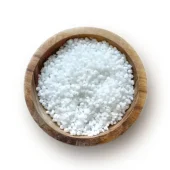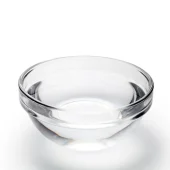Mineral oil is an incredibly popular ingredient used by a variety of industries, ranging from cosmetic and personal-care manufacturing to mechanical work and engineering. The term “mineral oil” itself is often quite broad and applies to several different types of petroleum-based oils. The mineral oil supplied by Jedwards International is commonly known as “liquid paraffin” and should not be confused with other paraffins used as fuel like kerosene. It is extracted from petroleum and goes through a very vigorous refining process.
Previously, we offered only one variety, Mineral Oil 70 – USP (C1007), but we’re excited to announce we added two more products to our mineral oil line so you can choose the best raw material to suit your application. Our new additions are Mineral Oil 90 – USP (C1016) and Mineral Oil 350 – USP (C1017).
Both new additions are highly refined, versatile ingredients with emollient and lubricating properties. Many lotions and creams formulated with mineral oil are able to lock in the moisture of the skin. All three options we offer are colorless, odorless, and tasteless, making no impact on a product’s final appearance.
So, what is the difference between them, and what do their numbers of 70, 90, and 350 represent? Great question! It all comes down to viscosity, or the measurement of a material’s thickness and consistency, especially when analyzed against internal friction.
Informally, viscosity refers to the resistance or internal friction of a fluid. In simpler terms, the thicker a liquid, the higher its viscosity. For example, syrup will have a higher viscosity than, say, water. Viscosity is highly important to formulating a cosmetic. Lotion applied to the skin must not be overly thin or it could slide right off, creating a potential unexpected mess. On the flip side, it cannot be so thick that it isn’t able to flow out of a pump applicator.
There are multiple ways to measure viscosity, but our oils are measured in SSU – Saybolt Seconds Universal. This is measuring the kinematic viscosity—the measure of a fluid’s resistance under the weight of gravity. Using a machine called a Saybolt viscometer, 60 milliliters at a temperature of 40°C are poured through a calibrated tube. When the first drop of liquid falls, the timer starts and then ends at the last drop. The resulting seconds is the SSU. Mineral Oil 70, for example, would have finished going through the viscometer in 70 seconds, making it a far lighter and thinner liquid than Mineral Oil 350. To put it in perspective: Mineral Oil 70 takes just over a minute to empty out, while the 60mL of Mineral Oil 350 almost takes 6 entire minutes for the last drop to fall.
Whether you want a light, easy-flowing Mineral Oil 70, slightly thicker Mineral Oil 90, or the rich Mineral Oil 350, you can buy them in bulk at wholesale prices at bulknaturaloils.com.





